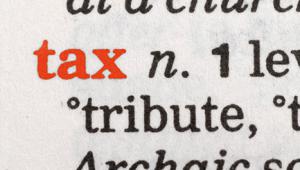The agreement, which forms the basis for administrative collaboration between its signatories, broke the 100 participants mark last week after five more countries signed up to the deal at a ceremony at the OECD’s Paris headquarters.
Grace Perez-Navarro, deputy director of the OECD Centre for Tax Policy and Administration, said that with over 100 jurisdictions participating in the agreement, “national efforts to combat tax evasion and avoidance have been substantially strengthened”.
The agreement, titled the Multilateral Convention on Mutual Administrative Assistance in Tax Matters, now has 103 signatories, with the newest being Burkina Faso, Malaysia, Saint Kitts and Nevis, Saint Vincent and the Grenadines and Samoa.
It serves as the instrument for implementing the automatic exchange of tax information between tax authorities in different jurisdictions and other transparency measures outlined in the OECD’s Base Erosion and Profit Shifting Project (BEPS), which aims to close loopholes in the international tax architecture that are used for cooperate tax avoidance.
One such measure facilitated by the agreement is the exchange of country-by-country reports, which will be compiled by multilateral companies starting in 2017-18.
The reports will contain information on the operations, profits and tax paid by companies for every jurisdiction in which they operate and will be exchanged between the relevant tax authorities, making corporate tax avoidance much easier to spot.
The OECD pointed out that the more countries that participate in the agreement, the stronger its impact. Perez-Navarro urged countries that have not yet signed up to do so in order to “benefit from the different types of cross-border tax cooperation” it affords.
Earlier this month, Liechtenstein signed up to the convention, while Kuwait also committed to a different agreement that facilitates the automatic exchange of information on offshore financial accounts.
The OECD’s BEPS project outlined long-awaited proposals to shore up the international tax system through a number of reforms and enhanced reporting and transparency measures.
However, critics have argued it did not go far enough. An all-party parliamentary group on responsible tax in the UK recently described the reforms as a “sticking plaster” that would not meet the challenge of tackling global tax avoidance and could even create new loopholes to be exploited.












